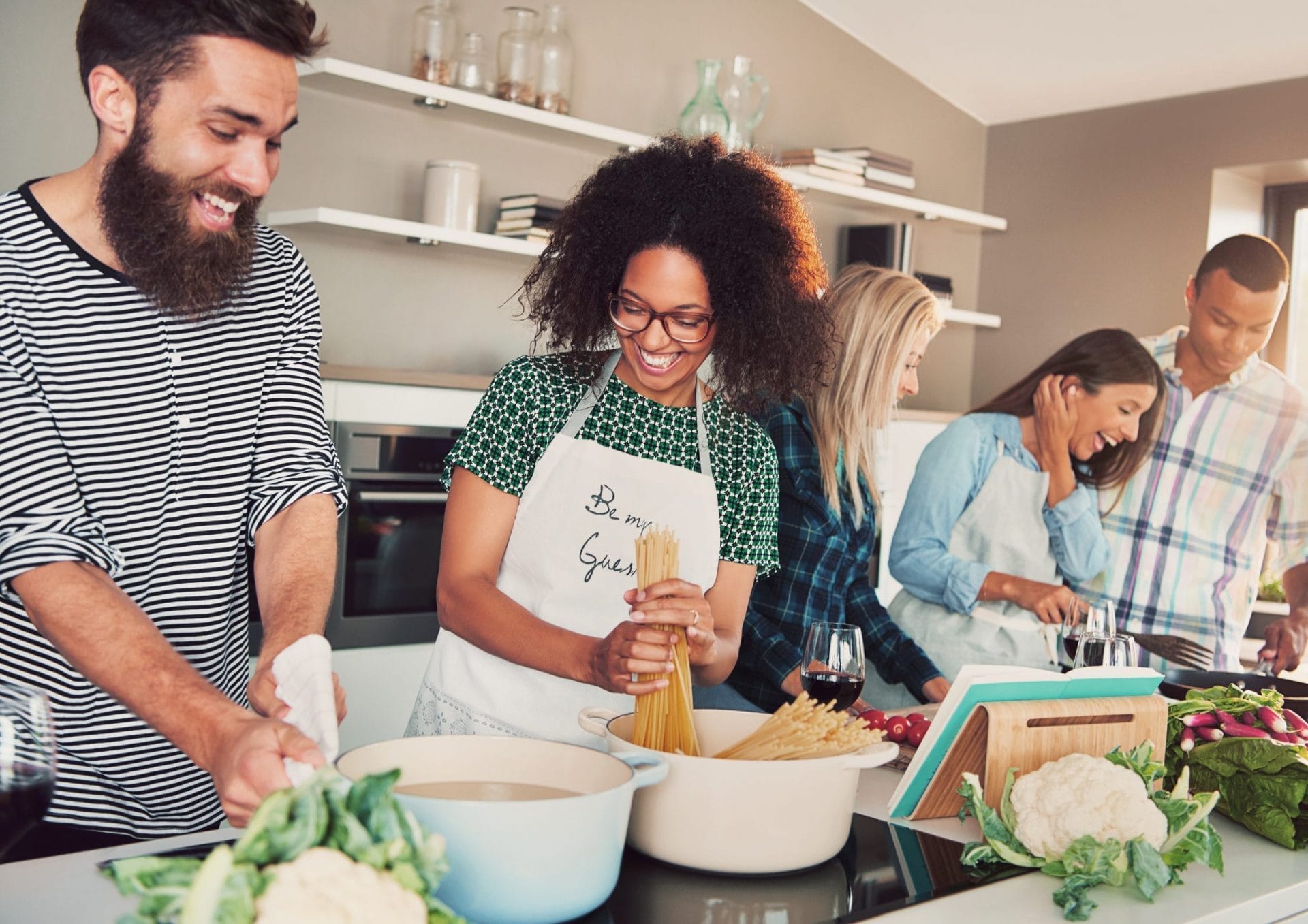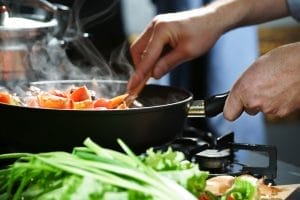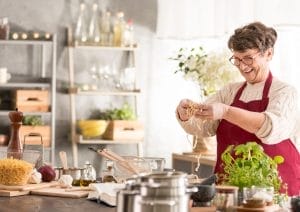The act of preparing and sharing meals at home is an integral part of human culture. However, the ongoing demands of our busy lifestyles have shifted the way in which we prepare, share, and enjoy our food. Despite the increased interest in cooking (from culinary television shows, cookbooks, and blogs), more industrial produced food is being consumed than ever before. This is both in part due to the lack of time to engage in cooking, but also because we have more access to healthy, nutritious foods at our fingertips through delivery services and apps!
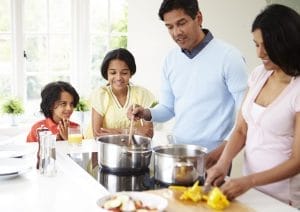 There are nutritional benefits of preparing your own meals – you have the ability to control and understand which ingredients are going into your food.
There are nutritional benefits of preparing your own meals – you have the ability to control and understand which ingredients are going into your food.
A 2014 systematic review by Reicks et al. in the Journal of Nutrition Education and Behavior found that teaching individuals to cook at home led to favourable changes in dietary intake of fibre and protein, as well as improved weight-related outcomes in individuals with type 2 diabetes and cardiovascular disease. But in recent years, there has been a growing interest in the cognitive and mental health advantages of cooking and dining in the comfort of one’s own home.
Research indicates that cooking and dining at home are associated with improved cognitive function, reduced stress, and enhanced emotional well-being.
The new year is an apt time to delve into the cognitive and mental health benefits of enjoying a home-cooked meal.
Cognitive Stimulation
Engaging in the process of meal preparation involves various cognitive tasks, such as recipe following, measuring ingredients, and multitasking. These activities provide cognitive stimulation and engagement of the frontal and temporal lobes of the brain – two areas that are associated with executive function and memory. In fact, cooking tasks have long been used in occupational and rehabilitation therapy to assess cognitive and physical function. In individuals with neurologic deficits including concussion and stroke, cooking has been used as a metric to study executive function and ability to plan complex tasks.
Confidence and Self-Esteem
A 2004 study by Haley et al. in the British Journal of Occupational Therapy studied the effects of baking classes amongst a small group of individuals admitted to hospital with mental health concerns. Participation in the baking classes resulted in self-reported improvements in concentration, confidence, and overall reports of self-esteem. This was thought to be mediated by the acquisition of new skills and self-efficacy associated with producing a product that could be kept or gifted to others.
Mood and Affect
A more recent study published in 2021 in Frontiers in Psychology set out to explore the psychological effects of cooking on individuals during the COVID-19 lockdown. The author’s recruited participants in Turkey between April-June in 2020 – during which strict lockdown measures were in place. Participants who took to the kitchen reported both happiness and relaxation during times of stress and isolation.
Building on these findings, a 2022 article published by Rees et al. in Frontiers in Nutrition investigated the impacts of a structured cooking program on healthy Australian adults. Over 650 adults were individuals who were recruited to complete a seven-week community-based cooking program, consisting of weekly 90-minute, hands-on cooking sessions with a focus on skill development and food literacy knowledge.
After the seven-week period, individuals completed a survey investigating food behavior, nutrition, and mental-health related outcomes. Interestingly, no changes were observed in the overall nutrition or dietary behaviors after completion of the course. However, there were significant improvements in cooking-related confidence, feeling of self-efficacy and improved mental health.
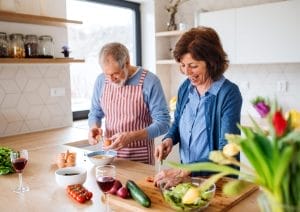 Finally, a 2007 study published in the Journal of Burn Care and Research evaluated the impact of cooking therapy amongst patients admitted to the hospital’s burn unit. A significant number of participants reported reduced anxiety levels after participating in the cooking program. Patient’s also noted that both the physical benefits of cooking and socialization with other burn survivors helped to anxiety and distress in the hospital.
Finally, a 2007 study published in the Journal of Burn Care and Research evaluated the impact of cooking therapy amongst patients admitted to the hospital’s burn unit. A significant number of participants reported reduced anxiety levels after participating in the cooking program. Patient’s also noted that both the physical benefits of cooking and socialization with other burn survivors helped to anxiety and distress in the hospital.
The evidence suggests that cooking and dining at home have benefits beyond just nutrition. Cooking is an excellent form of cognitive stimulation and can promote improved confidence, self-esteem and mood. Encouraging individuals to embrace the tradition of cooking and eating at home can lead to a healthier, happier, and more mentally engaged population.
So let’s get cooking! Start by researching a new superfood recipe to try here.
